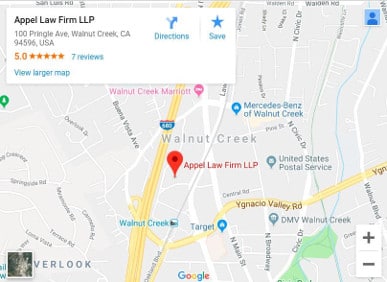Filing for workers compensation in California can be a tedious process, but if you have been injured at work and you are unable to return to your current duties, filing for workers compensation is your only recourse for recovering lost wages. Filing for workers compensation requires that you fill out all of the appropriate forms, and then giving this form to your employer so that they can fill out their portion.
Form DWC 1 and Getting Your Workers Compensation Claim Started
The first form that you need to fill out to get your workers compensation claim started is the DWC 1 form. This is a simple form, where you must supply your contact information, address, social security number, date of injury and type of injury you sustained. You are responsible for filling out the first part of this form and then submitting it to your employer so that they can finish their portion of the form. It’s important that you describe the nature of your injury, and that you indicate the date and time the injury occurred. The more information you can provide on this form, the easier it will be for a claims administrator to review your claim.
What You May Be Entitled to Because of Your Injury
When you are injured at work, it is reasonable to expect that workers compensation is going to pay for your medical costs associated with your injury. Your place of employment may choose your primary care physician that is treating your injuries, and it is up to you to work closely with this provider who will be letting your employer know when you are ready to return to work. If you are not satisfied with your care, you have the ability to seek care elsewhere, but most places want you to work with their chosen primary care physician for at least 30 days before changing.
Medical costs that will be covered by workers compensation would include all treatment necessary for your work-related injuries, including any testing or hospital stays. Further benefits would include payment for lost wages, partial or full disability payments if you are permanently injured, or survivor benefits if your injuries result in your death.
Once you complete the initial form and submit it to your employer, your next step is to work closely with the primary care physician assigned to you. If you miss medical appointments, or you don’t follow up with treatment recommendations, it will appear as if you are not as injured as you claim to be. If the treatment is not working, be clear with your primary physician, and maintain frequent contact with the physician’s office.
You must also sign medical releases so that workers compensation can review your treatment records with the primary care physician chosen for you. While you may not want anyone to see your medical records, it’s important for workers compensation to see the treatment you are getting so that your injuries are verified.
If you have been denied workers compensation benefits, you have the right to attain legal representation. Whether your injury is not seen as serious enough, or it is difficult to prove that your injury was sustained at work, an experienced attorney can help you navigate the sometimes complicated waters of filing a workers compensation claim. When you are truly injured, the last thing you want to do is fight insurance companies to try and receive treatment or lost wages. By working with an attorney, you can take some of the stress out of your life and focus on healing.
Seeking legal counsel to help you file your workers compensation claim will help move the process along more rapidly. When you hire an attorney, you are making it clear to the insurance company that you are serious about your injuries and that are going to fight to receive the benefits that you are legally entitled to. By meeting with our attorneys for a free initial consultation, you will be able to learn more about your rights, and talk with a professional who can help you sort out what is going wrong with your case.

Speak Your Mind